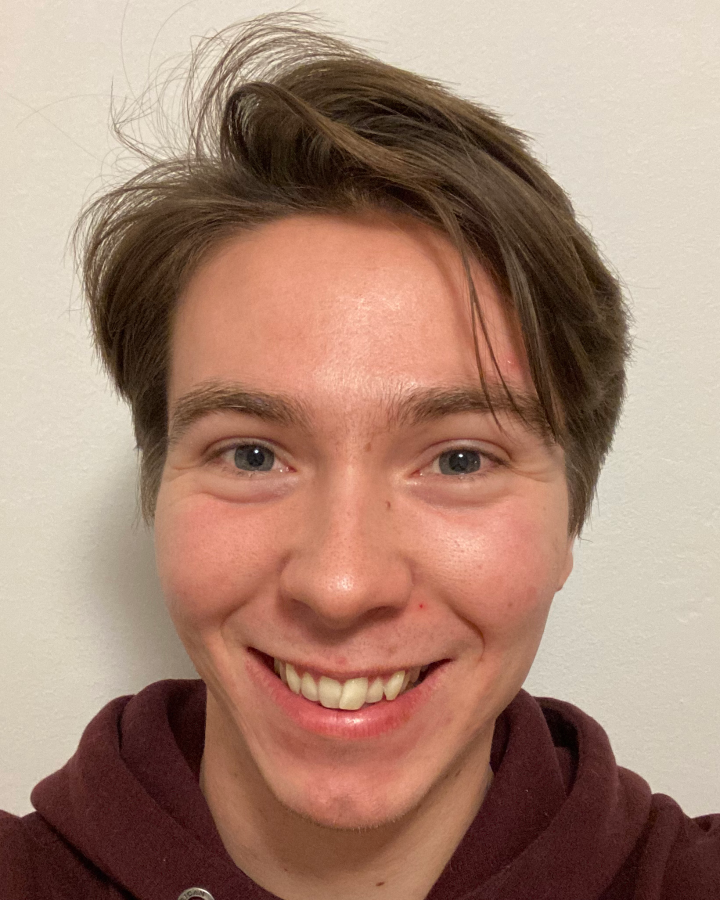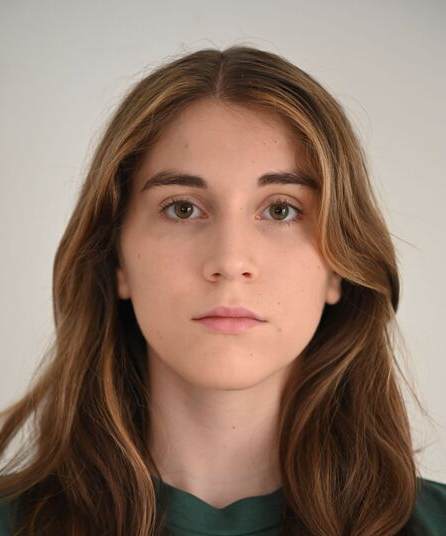Gerti Kappel
O.Univ.Prof.in Dipl.-Ing.in
Mag.a Dr.in techn.
Gerti Kappel
- Email: gertrude.kappel@tuwien.ac.at
- Phone: +43-1-58801-18870
- Office: HC0215 (1040 Wien, Favoritenstrasse 9)
- About:
Gerti Kappel is full professor at the Institute of Information Systems Engineering at TU Wien, chairing the Business Informatics Group. Prior to that, from 1993 to 2001, she was a full professor of computer science (database systems) and head of the Department of Information Systems at the Johannes Kepler University Linz.
From 2016 to 2019, she was a member of the dean’s team of the Faculty of Informatics responsible for research, diversity, and financial affairs. Since the beginning of 2020 she acts as the dean of the Faculty of Informatics at TU Wien.
Her current research interests include Model Engineering, Web Engineering, and Process Engineering, with a special emphasis on cyber-physical production systems. Striving for the unity of research and teaching, she co-authored and co-edited among others „UML@Work“ (dpunkt.verlag, 3rd ed, 2005), „UML@Classroom“ (Springer, 2015), and „Web Engineering“ (Wiley, 2006).
- Orcid: 0000-0002-4758-9436
- Keywords: Process Engineering, Data Engineering, Services Engineering, UML and XML, Business Process Management (BPM), Model Engineering, Workflow Management Systems (WFMS), Web Engineering, Object Orientation, Software Engineering
- Roles: Head of Services, Full Professor
Publications
Mayerhofer, T., Langer, P., & Kappel, G. (2015). Semantic Model Differencing Based on Execution Traces. In Proceedings of Software Engineering & Management 2015 (pp. 78–79). GI. http://hdl.handle.net/20.500.12708/55717
UML Profile Generation for Annotation-based Modeling
 Alexander Bergmayr
Alexander Bergmayr Michael Grossniklaus
Michael Grossniklaus Manuel Wimmer
Manuel WimmerKeywords:
Astract: The capability of UML profiles to serve as annotation mechanism has been recognized in both industry and research. With JUMP, we have presented a fully automatic approach to generate profiles from annotation-based Java libraries. We have demonstrated the practical value of JUMP by contributing profiles that facilitate reverse-engineering and forward-engineering scenarios for the Java platform. Its evaluation shows that automatically generated profiles are equal or even improved in quality compared to profiles currently used in practice.
Bergmayr, A., Grossniklaus, M., Wimmer, M., & Kappel, G. (2015). UML Profile Generation for Annotation-based Modeling. In Softwae Engineering / Software Management 2015 (pp. 101–102). GI. http://hdl.handle.net/20.500.12708/55948
Keywords: Transformation, SiTra, Java 8, Legacy Code
Astract: Although many different model transformation languages (MTLs) and model transformation frameworks (MTFs) exist, each of them is requiring a developer to learn an additional language. Moreover since many of them follow a declarative approach, they are often less intuitive for programmers familiar with imperative language. Therefore a Java based imperative library called jTL has been developed which enables the user to write the whole transformation process in pure Java. The resulting jTL is applicable to a wide range of transformation tasks that include classical graph based source models or especially source code translation, because transformation of legacy code is still a not yet solved challenge in software migration. Since source code transformation is a quite complex and performance intensive task, the jTL represents an easy to use approach, which focuses on goals like maintainability, readability, reusability and performance improvements. To achieve these goals two similar existing approaches were examined to uncover weaknesses and deduce possible improvements for the resulting jTL. Moreover jTL further benefits from new Java 8 features like bulk operation, lambda expression, functional interface and parallel stream processing. Although jTL has been kept as simple as possible, it is still a complete transformation approach, since it also supports further important features like tracing or reuse mechanisms like rule inheritance which should be part of every state of the art transformation language. As an evaluation, two concrete transformation examples are given that make use of jTL. This should give an idea how a transformation with jTL can be established and what differences and improvements come up with jTL in contrast to other Java based transformation solutions.
Eischer, B. (2015). Java Transformation Library (jTL) [Diploma Thesis, Technische Universität Wien]. reposiTUm. https://doi.org/10.34726/hss.2015.26549
Kappel, G. (2015). From Software Modeling to System Modeling - Transforming the Change. 8th International Conference on Graph Transformation (ICGT), L’Aquila, Italy, EU. http://hdl.handle.net/20.500.12708/86247
Kappel, G. (2015). From Software Modeling to System Modeling- Transforming the Change. Ruzena Bajcsy Lectures on Communications, TU Darmstadt, Darmstadt, Germany, EU. http://hdl.handle.net/20.500.12708/86248
Teaching
Project in Computer Science 1
Semester: 2025S; Nr: 194.145; Type: PR; Hours: 4.0; Language: if required in English; View on TISSSeminar for Master Students in Business Informatics
Semester: 2024W; Nr: 180.779; Type: SE; Hours: 1.0; Language: English; View on TISSResearch Seminar
Semester: 2024W; Nr: 188.446; Type: SE; Hours: 2.0; Language: if required in English; View on TISSLiterature Seminar for PhD Students
Semester: 2024W; Nr: 188.512; Type: SE; Hours: 2.0; Language: German; View on TISSModel Engineering
Semester: 2024W; Nr: 188.923; Type: VU; Hours: 4.0; Language: English; View on TISSBachelor Thesis for Informatics and Business Informatics
Semester: 2024W; Nr: 188.926; Type: PR; Hours: 5.0; Language: if required in English; View on TISSScientific Research and Writing
Semester: 2024W; Nr: 193.052; Type: SE; Hours: 2.0; Language: German; View on TISSProject in Computer Science 1
Semester: 2024W; Nr: 194.145; Type: PR; Hours: 4.0; Language: if required in English; View on TISSSustainability in Computer Science
Semester: 2024W; Nr: 194.155; Type: VU; Hours: 2.0; Language: English; View on TISSProjects
Digitale Kompetenzen @ Parlament
Name: DKP; Title: Digitale Kompetenzen @ Parlament; Begins On: 2021-04-01; Ends On: 2021-09-30; Context: Parlamentsdirektion; View Project WebsiteIFC-Roundtrip und Plangrafiken
Name: IFC-Roundtrip und Plangrafiken; Title: IFC-Roundtrip und Plangrafiken; Begins On: 2019-01-01; Ends On: 2020-06-30; Context: tbw solutions ZT GesmbH; View Project WebsiteVienna Informatics Living Lab
Name: Vienna Informatics Living Lab; Title: Vienna Informatics Living Lab; Begins On: 2018-08-01; Ends On: 2019-07-31; Context: Vienna Business Agency (WAW); View Project WebsiteMulti-Paradigm Modelling for Cyber-Physical Systems (MPM4CPS)
Name: MPM4CPS; Title: Multi-Paradigm Modelling for Cyber-Physical Systems (MPM4CPS); Begins On: 2014-10-01; Ends On: 2019-05-31; Context: European Cooperation in Science and Technology (COST); View Project WebsiteCOSIMO: Collaborative Configuration Systems Integration and Modeling
Name: COSIMO; Title: COSIMO: Collaborative Configuration Systems Integration and Modeling; Begins On: 2014-01-01; Ends On: 2017-05-30; Context: Vienna Business Agency (WAW); View Project WebsiteARTIST: Advanced software-based seRvice provisioning and migraTIon of legacy Software
Name: ARTIST; Title: ARTIST: Advanced software-based seRvice provisioning and migraTIon of legacy Software; Begins On: 2012-10-01; Ends On: 2015-09-30; Context: European Commission; View Project WebsiteDARWIN - Model-driven Development and Evolution of Semantic Infrastructures
Name: DARWIN; Title: DARWIN - Model-driven Development and Evolution of Semantic Infrastructures; Begins On: 2012-03-01; Ends On: 2015-02-28; Context: Austrian Research Promotion Agency (FFG); View Project WebsiteTROPIC: A Framework for Model Transformations on Petri Nets in Color
Name: TROPIC; Title: TROPIC: A Framework for Model Transformations on Petri Nets in Color; Begins On: 2009-03-01; Ends On: 2012-08-31; Context: Austrian Science Fund (FWF); View Project WebsiteAMOR: Adaptable Model Versioning
Name: AMOR; Title: AMOR: Adaptable Model Versioning; Begins On: 2009-02-01; Ends On: 2011-09-30; Context: SparxSystems Software GmbH; View Project WebsiteDevelopment of a WEB-based database for the global administration of CAN-Data
Name: Rosenbauer-DB; Title: Development of a WEB-based database for the global administration of CAN-Data; Begins On: 2008-09-01; Ends On: 2009-04-30; Context: Rosenbauer; View Project WebsiteModel-Driven Web Engineering net
Name: MDWEnet; Title: Model-Driven Web Engineering net; Begins On: 2006-12-01; Ends On: 2010-12-31; Context: Johannes Kepler Universität Linz; View Project WebsiteTRACK and TRADE: Creating a Data Mart for Floating Car Data
Name: TRACK™ Title: TRACK and TRADE: Creating a Data Mart for Floating Car Data; Begins On: 2006-10-01; Ends On: 2008-09-30; Context: European Commission; View Project WebsiteModelCVS: A Semantic Infrastructure for Model-based Tool Integration
Name: ModelCVS; Title: ModelCVS: A Semantic Infrastructure for Model-based Tool Integration; Begins On: 2006-01-01; Ends On: 2007-12-31; Context: ARIKAN Productivity Group GesmbH; View Project WebsiteZELESSA: An Enabler for Real-time Business Intelligence
Name: ZELESSA; Title: ZELESSA: An Enabler for Real-time Business Intelligence; Begins On: 2006-01-01; Ends On: 2007-06-30; Context: Österr. Nationalbibliothek; View Project WebsiteAdmina.at goes Austria
Name: Admina.at; Title: Admina.at goes Austria; Begins On: 2005-12-01; Ends On: 2007-09-30; Context: Federal Ministry of Science and Research (bm:wf); View Project WebsiteWomen's Postgraduate College for Internet Technologies
Name: WIT; Title: Women's Postgraduate College for Internet Technologies; Begins On: 2003-01-01; Ends On: 2007-12-31; Context: European Commission; View Project WebsiteTeam
Business Informatics Group, TU Wien
Professors
Christian Huemer
Ao.Univ.Prof. Mag.rer.soc.oec.Dr.rer.soc.oec.
Dominik Bork
Associate Prof. Dipl.-Wirtsch.Inf.Univ.Dr.rer.pol.
Gerti Kappel
O.Univ.Prof.in Dipl.-Ing.inMag.a Dr.in techn.
Henderik Proper
Univ.Prof. PhDResearchers
Aleksandar Gavric
Univ.Ass. MEng. B.Eng.
Galina Paskaleva
Projektass.in Dipl.-Ing.inDipl.-Ing.in BSc

Marianne Schnellmann
Univ.Ass.in BSc MScMarion Murzek
Senior Lecturer Mag.a rer.soc.oec.Dr.in rer.soc.oec.
Marion Scholz
Senior Lecturer Dipl.-Ing.inMag.a rer.soc.oec.
Miki Zehetner
Univ.Ass. DI Bakk.rer.soc.oec. MScSyed Juned Ali
Univ.Ass. BSc MScStudent-Staff

Florian Fankhauser
Projektass. Dipl.-Ing.Julia Smejkal
BSc






